Mary (not her real name), a resident of Kambogo village, Uriri sub-county in Migori county was a nursery school teacher when her husband succumbed to an ailment, which consumed him within a year.
According to her, no one would have thought of any kind of ailment that could consume someone so fast other than ‘chira’, a communal taboo among the Luo community.
Although, the suspicion of HIV infection often crossed her mind as her husband’s health was deteriorating. But she was torn between chira and witchcraft due to past land disputes but not HIV.
“My husband’s sickness happened so fast that we thought he was bewitched or chira befell him,” she remembers while pulling her plastic chair to sit comfortably under the roof shade.
This was back in 2009 when there were no advanced healthcare systems to deal with HIV infection in the community as of now.
There were no community health volunteers (CHVs) to sensitize the community about the virus, its symptoms, prevention and even the importance of checking one’s status,
Mary
One morning I woke up feeling weird and my skin was itchy, especially on my face, I made breakfast and saw the kids off to school. When I returned to the main house to examine myself because I haven’t been paying attention to my body, I was shocked
Moreover, the thought of having the virus and the negative rumours around it, would not allow any member of the community to go for testing and start medication.
New changes and strange feelings
Months later after burying her husband, she narrates experiencing some physical changes in her body accompanied by some strange ailments.
“One morning I woke up feeling weird and my skin was itchy, especially on my face, I made breakfast and saw the kids off to school,” she said.
She went on: “When I returned to the main house to examine myself because I haven’t been paying attention to my body, I was shocked.”
She narrates while she rests her stiff intertwined fingers on her lap.
Mary knew there was a chance she was infected with HIV. But she was scared of being tested or letting anyone know, afraid of being shunned.
One morning I woke up feeling weird and my skin was itchy, especially on my face, I made breakfast and saw the kids off to school. When I returned to the main house to examine myself because I haven’t been paying attention to my body, I was shocked
Mary
“I had rashes all over me and severe headache and stomach ache.”
Things got worse when her close friends and neighbours spread rumours speculating she was sick.
The common theory was that she was HIV positive. They turned away from her, while her brother-laws blamed her for his brother’s death.
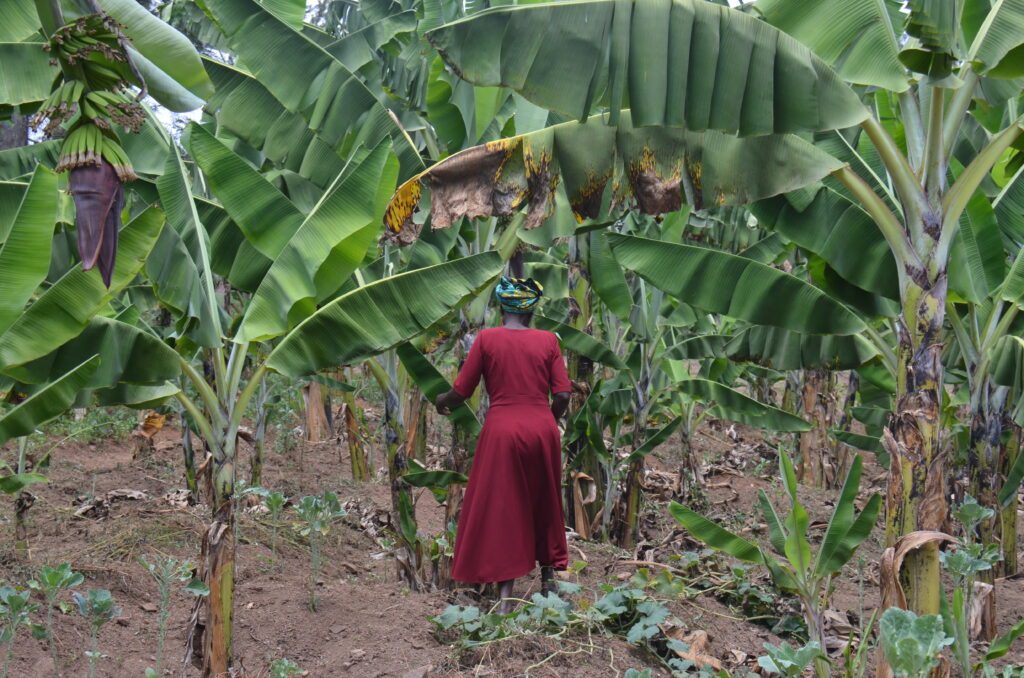
Accepting and facing the reality
Amidst the dilemma, she decided to go for an HIV test. The test verified what she suspected.
But, unlike her husband, she took control of how the disease impacted her life.
She wasn’t going to let stigma further destroy her family and her children’s lives.
Mary said that for now, she believes it was the stigma and self-denial of having the virus that lead to her husband’s demise.
“I have had neighbours who think if they greet me, they will get the disease,” Mary says.
“My partner was so scared of what people would think of us and it consumed him.”
At the time, Mary was in and out of local health centres battling pneumonia and strange skin infections.
Regrettably, the nearby clinics she visited weren’t well equipped to treat these ailments.
This forced her to travel to the then Migori District hospital, 40 kilometres away to get help.
When I started medication, parents of the nursery school told me to stop attending to their children. My guess was as well, I would infect them. My children also were subjected to stigmatization
Mary
Losing her job
Her health condition made her lose her teaching job, as parents were cagey about her interacting with their children.
To add to her loss, her children were subjected to ridicule as their peers would not play with them based on what people said about her.
“When I started medication, parents of the nursery school told me to stop attending to their children. My guess was as well, I would infect them. My children also were subjected to stigmatization,” said Mary.
Like her late husband, stigmatization pushes many patients opt to stop taking drugs and die silently while blaming other forces.
HIV prevalence rate and stigma
In a 2016 Declaration, the UN states that the eradication of HIV-related stigma and discrimination by 2020 is essential to achieving the Sustainable Development Goals by 2030.
The stigma often weakens the prevention of the spread of the viral disease, with many still afraid of seeking relevant information or revealing their status to their partners.
Preliminary findings of the Kenya Population-based HIV Impact Assessment (KENPHIA) 2018 survey indicated that Kenya’s HIV prevalence stands at 4.9 per cent.
This translates to about 1.34 million Kenyans who are living with HIV.
Also, a National AIDS Control Council report shows that the HIV prevalence rate is alarmingly high in several counties between 2020 to 2021.
Migori County was ranked third, standing at 14.3 per cent, which is nearly 2.5 times higher than the national prevalence.
The HIV prevalence among women is higher (15.2 per cent) than that of men (13.1 per cent), indicating that women are more vulnerable to HIV infection than men in the county.
According to the research, factors such as stigma were among the key contributors to the high HIV prevalence rates in the country.
HIV stigma
Stigma refers to negative attitudes, beliefs (often erroneous ones) and discrimination towards people living with HIV.
For decades, HIV stigma and discrimination have continued to have a negative impact on infected and affected individuals.
However, stigma is now a thing of the past to most patients in Kambogo village in West Kanyamkago ward in Uriri constituency, thanks to the HIV support groups.
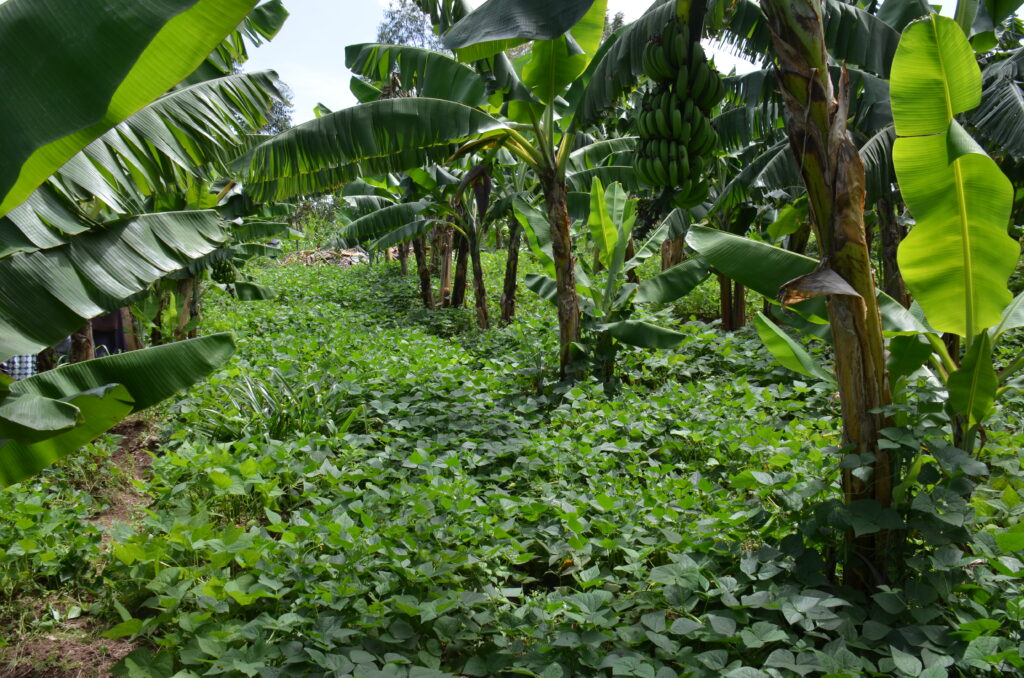
The support groups
According to Mary who is now a member of Kambogo support group, it is through the support from her colleagues in the support group, that she manages to beat the stigma burden.
“The group members who are also HIV positive offered me counseling. They encouraged me not to allow the disease to take charge of my life. It is through them that I realized I was not alone,” she said.
“I came to learn that other members had faced more difficult problems than mine. This gave me hope.”
I had to stop going to the hospital around here because I know most of the workers there. I could not trust them to keep my status secret so I opted to go as far as Rongo Sub County which is quite far
Gloria
Gloria (not her real name), another member of the group, says that the fear of being discriminated against at a close health facility forced her to look for a different hospital.
“I had to stop going to the hospital around here because I know most of the workers there, and they know me,” she said.
“I could not trust them to keep my status secret so I opted to go as far as Rongo Sub County Hospital which is quite far.”
Gloria says she used to spend around Sh500 on transport for a single hospital visit.
Drug adherence was her main challenge, especially on days she could not manage the transport cost.
Gloria says that going public about her status saw her deserted by close friends and some family members.
However, through the support group, she has met new friends and some of her relatives who shunned her have started coming back into her life.
Although she has not changed her facility to the nearest healthcare, she says she can afford the transport from her investment from their small table banking
HIV support groups
Kambogo support group is one of the more than 15 support groups in Uriri sub-county.
The group raises awareness and speaks out against stigma and discrimination towards people living with HIV.
It was formed through farmers’ group, aided by a local community organisation called the Ripple Effect.
During farmers’ engagements, it came out that most of the group members who were infected with HIV were living in fear.
Majority feared being secluded from such activities by the community members.
At first, only a few came out to join the HIV support groups.
Although with time, the benefits realised by initial members attracted others to join.
From the support groups, members get more training on living healthily positively.
This is in addition to getting home visits by Community Health Volunteers (CHVs) who also sometimes bring drugs to the incapacitated clients.
Each support group has a maximum of 20 group members with one CHV and one Peer Farmer Trainer (PFT).
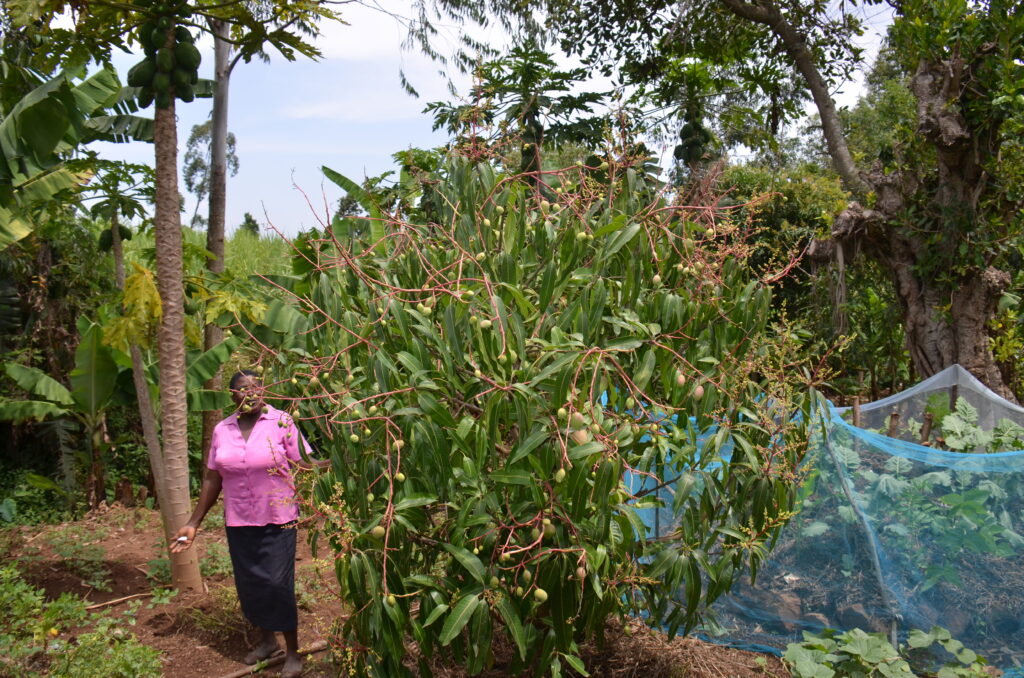
Making peace with stigma
“We have made peace with ourselves and it is our wish that every single person accepts their status,” says Maurine (not her real name), who has lived with the virus for a decade now.
“Stigma no longer affects us in any way,” she added.
Maurine further states that initially, she was not comfortable taking drugs by herself and sometimes asked the CHVs to assist her.
However, through the training received from the support group, for the last 10 years, she has been comfortably taking her drugs without any fear.
“All the group members are brave and that is why we can reveal our status to anyone without fear of stigma,” explained Maurine.
Fear of the unknown
The fear of losing her life pushed Magdalene (not her real name), another member of the support group, to join the groups with the hope that she would beat the stigma.
We can only reduce the infections by knowing our status even as those who are infected continue taking their drugs
Magdalene
When she learnt of her HIV status in 2015 after an unending illness, she chose to keep it a secret from her husband for fear of being divorced.
She lived in denial for a year, failing to start medication in time.
It eventually resulted in her health deteriorating as other opportunistic diseases crept in.
“In 2016, I had become weak and had to be rushed to the nearest health facility. That’s when I revealed my status to my husband,” she says.
It took him time to accept because to him she was dying.
This left her devastated as she would lock herself in his house and eventually slide into depression.
The intervention from the support group saved her life and her marriage, as she learnt how she and her husband can live as discordant couples.
Other than sharing the knowledge among themselves, the members often visit social places including markets, churches and recreational centres to create awareness of the viral disease.
“We can only reduce the infections by knowing our status even as those who are infected continue taking their drugs,” says Magdalene.
She notes that support groups across the sub-counties have improved HIV care adherence and outcomes.
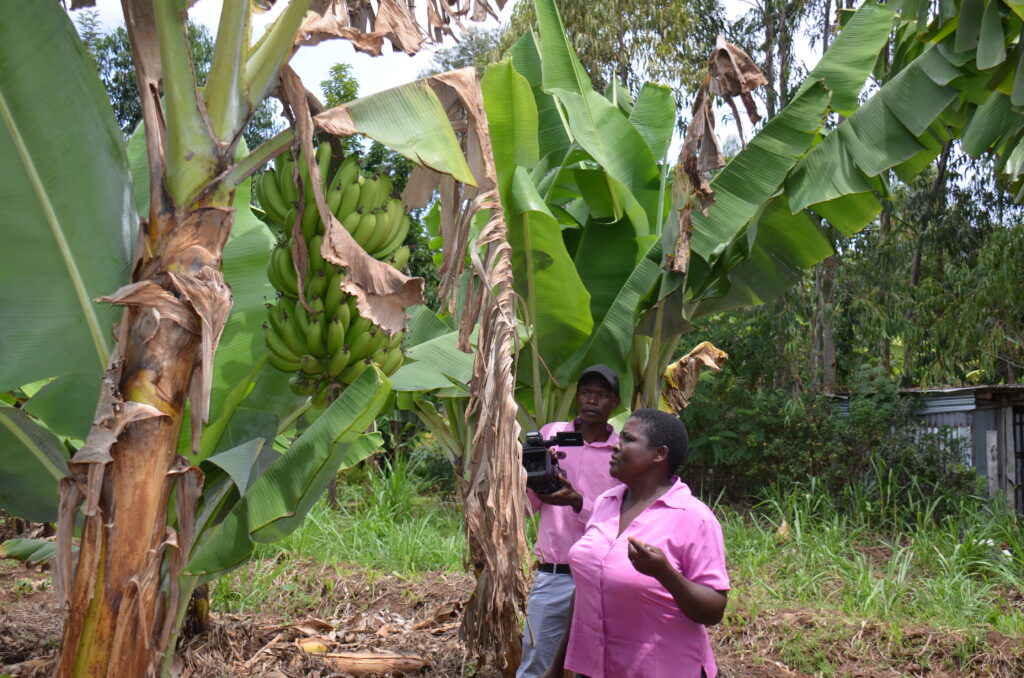
Improved defaulter tracing by CHVs
The CHVs also use the support groups to spearhead awareness campaigns in a move aimed at reducing the number of ARV defaulters.
Through the support groups, it has become easier for the CHVs to identify and trace those defaulting drug uptake.
“We realized that more people were dying in silence and in hiding due to stigma and fear of being secluded.
Stigma was preventing many patients from accessing medical care,” said Margaret Ayuya, a CHV working with women in the support groups.
According to Ayuya, their work of tracing drug defaulters was difficult because the facility would give them patients’ files but the patients often go into hiding.
Even though they were giving training on stigmatization, they did not have support groups to strengthen the learnings.
“With the support groups, there are reduced number of supporters. But even if there are any, we can easily trace them through the groups,” narrates Ayuya.
It is also one of the initiatives used to sensitize the community to go for voluntary HIV/AIDS testing, especially women, who form the highest percentage of the infected.
Farming activities, income and a balanced diet
“Those who joined support groups got training from Ripple Effect on how to plant bananas, and vegetables which have helped them improve their nutrition diet,” added Ayuya
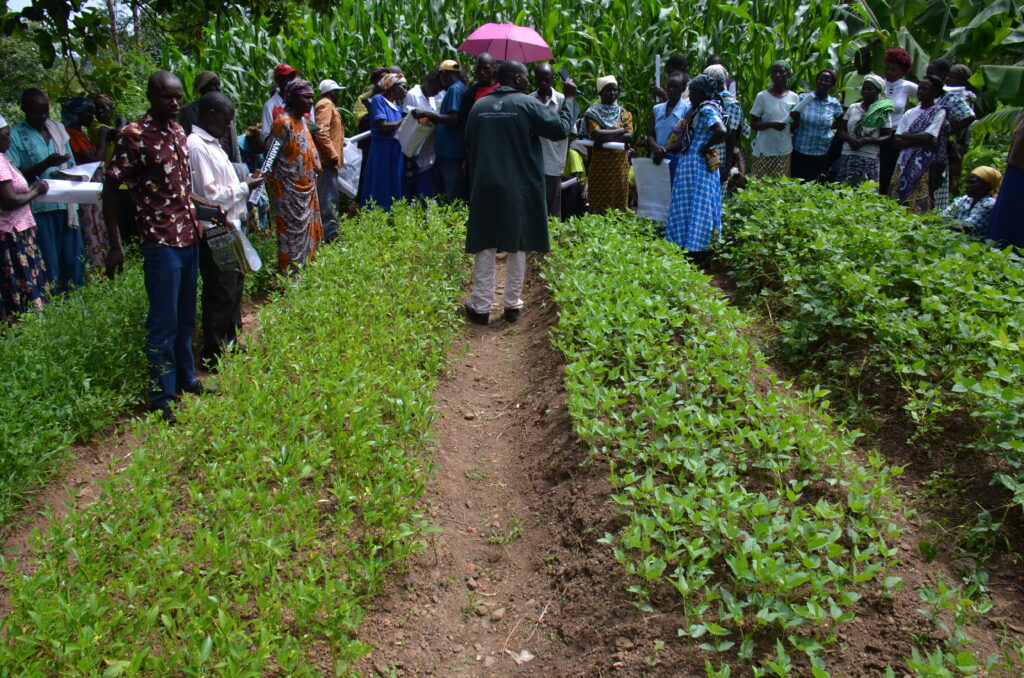
Through their unity, Ripple Effect offered to train them on various farming techniques.
The knowledge acquired has enabled them to grow vegetables, fruits and other food crops which have helped them beat hunger and problems associated with poor nutrition.
In addition, they sell their surplus farm production to generate income and raise funds to support their families and pay school fees.
For instance, a banana project introduced by the organization to the groups has drastically improved their earnings as they sell bananas.
Some members have resorted to chicken rearing which also brings income.
Change of perception.
From living a life of thinking about an early grave, the group members have changed their perception of life and have turned things around them.
Hygiene has become one of the vital components of their well-being.
Through their groups, they have learnt ways of maintaining high hygiene standards.
“Today we have modern dishwashing rack we made from training which has saved us a lot in terms of hygiene of our kitchen utensils,” says Magdalene as she rinses some of the plates.
She added that the community and group members were also encouraged to sink pit latrines which have helped in curbing cholera.
This is in addition to regular washing of hands regularly from the tiptop technology they learnt.
“Through the support groups, our lives have changed,” says Magdalene with an optimistic smile spread on her face.
The success of the initiative is highly reliant on the number CHVs. To sustain it, there is a need for the recruitment of more CHVs as the current number cannot meet the community’s needs.
According to Beatrice Were, the County Project Coordinator for Ripple Effect, they identified, trained and supported 50 smallholder farmer groups in sustainable agriculture and farming systems.
She states that about 30 per cent of small-holder farmers were living with HIV and could not afford to generate food or income.
We also identified and trained Community Health Volunteers to disseminate learning and behavior change in community, established links to health facilities for HIV/AIDS patients, voluntary testing and counseling
Beatrice Were
In addition, majority were living in fear of being stigmatized or excluded should their HIV status be known by the community or their close family members.
She notes that as a result of the project, small-holder farmers have increased social resilience and contributing towards change in attitude towards people living with HIV.
“We engaged people living with HIV to take the lead in campaigns for sharing and reduce stigma, improve health seeking behavior,” she said.
“We also identified and trained Community Health Volunteers to disseminate learning and behavior change in community, established links to health facilities for HIV/AIDS patients, voluntary testing and counseling,” continued the project lead.
